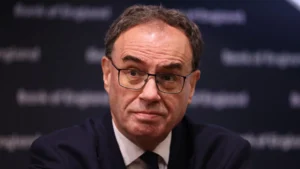In yet another audacious statement, Michael Saylor, the co-founder and executive chairman of MicroStrategy, has advised the United States to sell its gold reserves and invest in Bitcoin. Known for his unwavering advocacy for the cryptocurrency, Saylor’s suggestion reflects his belief that Bitcoin is the future of global finance. This bold recommendation has sparked widespread discussion about the role of traditional assets versus digital assets in the modern economy.
Michael Saylor’s Argument: Why Bitcoin Over Gold?
Saylor’s call to replace gold with Bitcoin stems from his long-standing view of Bitcoin as “digital gold.” Here are the key arguments he puts forth:
1. Superior Store of Value
According to Saylor, Bitcoin offers superior properties as a store of value compared to gold.
- Scarcity: Bitcoin’s supply is capped at 21 million, making it more scarce than gold, which continues to be mined.
- Portability: Bitcoin is digital, allowing for easy transfer and storage, while gold is cumbersome to store and move.
- Divisibility: Bitcoin can be divided into smaller units (satoshis), making it more versatile for transactions.
2. Protection Against Inflation
Saylor argues that Bitcoin is a better hedge against inflation than gold. As central banks print money, the value of fiat currencies erodes, and traditional assets like gold struggle to keep pace. Bitcoin, with its deflationary nature, provides a more effective safeguard against inflation.
3. Technological Revolution
Bitcoin represents the future of decentralized finance. Saylor believes that investing in Bitcoin aligns with the digital transformation of the global economy, offering the US a chance to maintain its dominance in financial innovation.
The Economics of Selling Gold for Bitcoin
The US holds the largest gold reserves in the world, estimated at over 8,100 metric tons, valued at approximately $500 billion. Saylor suggests that reallocating this wealth into Bitcoin could yield significant advantages:
- Higher Returns: Bitcoin’s historical performance has far outpaced gold, with gains in the thousands of percent over the past decade.
- Geopolitical Edge: A Bitcoin-rich US could lead the world in cryptocurrency adoption, strengthening its position in global finance.
- Reduced Storage Costs: Transitioning from physical gold to digital Bitcoin would eliminate the high costs associated with securing and storing gold reserves.
Critics Weigh In
While Saylor’s advice has captured the attention of Bitcoin enthusiasts, it has also drawn criticism from financial traditionalists and economists.
Volatility Concerns
Bitcoin is known for its price volatility. Critics argue that the US cannot afford to hold reserves in an asset that can lose significant value in a short period, unlike gold, which has historically been stable.
Regulatory Challenges
Adopting Bitcoin as a national reserve asset would require significant regulatory and infrastructural changes, which could take years to implement.
Unproven Long-Term Stability
Gold has been a reliable store of value for centuries. Bitcoin, while promising, is a relatively new asset, and its long-term stability is still untested.
Michael Saylor’s Track Record
Saylor’s advocacy for Bitcoin is backed by his own actions. Under his leadership, MicroStrategy has acquired over 150,000 BTC, valued at more than $4 billion, making it one of the largest corporate Bitcoin holders. The company has consistently reaped benefits from its Bitcoin investments, despite market volatility.
Saylor’s personal and corporate success with Bitcoin has added credibility to his bold claims, but skeptics caution against assuming that what works for a private corporation would work for a nation-state.
The Bigger Picture: Gold vs. Bitcoin Debate
Saylor’s advice reignites the ongoing debate over the role of gold and Bitcoin in the global economy:
Gold’s Legacy
- Trusted for centuries as a safe haven during economic uncertainty.
- Widely accepted globally and supported by traditional financial institutions.
Bitcoin’s Potential
- Represents the future of decentralized, digital finance.
- Offers faster transactions and reduced barriers to global commerce.
Both assets have their unique advantages, but Saylor’s vision reflects a shift in thinking as digital assets gain mainstream acceptance.
Conclusion
Michael Saylor’s call for the US to sell its gold reserves and invest in Bitcoin is a bold proposition that challenges traditional financial norms. While Bitcoin’s potential as a transformative asset cannot be denied, its volatility and relatively short history make it a risky choice for national reserves.
However, Saylor’s suggestion highlights the growing importance of cryptocurrencies in the global economy. As the world moves toward a digital future, the debate over gold versus Bitcoin will continue to shape economic strategies, forcing nations and institutions to reconsider their positions on these assets.
For now, Saylor’s vision remains a provocative idea—but one that could potentially redefine the future of wealth preservation and financial leadership.




